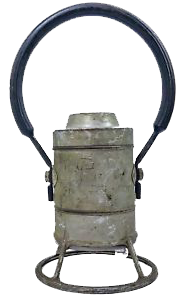 |
Rockhill Trolley Museum Streetcars
|

Rockhill, Pa / Jun 2003 / JCH

Check out Rockhill Trolley Museum's website for a complete roster of equipment

York Railways Co. #163
Rockhill, Pa / Jun 2003 / RWH


York Railways Co. #163
York, Pennsylvania
retired 1939
to private ownership
to Rockhill Trolley Museum


Rockhill, Pa / Jun 2003 / JCH

 Another trolley builder, the Cincinnati Car Co., had a patent on the curved-side car. Brill built five curved-side cars for York Railways and in doing so infringed on the patent. Cincinnati sued Brill. Consequently, these five curved-side cars were the only ones built by Brill. York #163 is the only preserved and operable trolley from the York Railways system.
York Railways stopped all streetcar operations on February 4, 1939, and car #163 was sold to be used as a summer home along Conewago creek north of York. The body of car #163 survived there until 1972, when Hurricane Agnes completely flooded the car, knocking it off its foundation. The owners no longer wanted the car and donated the body to the museum.
Another trolley builder, the Cincinnati Car Co., had a patent on the curved-side car. Brill built five curved-side cars for York Railways and in doing so infringed on the patent. Cincinnati sued Brill. Consequently, these five curved-side cars were the only ones built by Brill. York #163 is the only preserved and operable trolley from the York Railways system.
York Railways stopped all streetcar operations on February 4, 1939, and car #163 was sold to be used as a summer home along Conewago creek north of York. The body of car #163 survived there until 1972, when Hurricane Agnes completely flooded the car, knocking it off its foundation. The owners no longer wanted the car and donated the body to the museum.

Rockhill, Pa / Jun 2003 / JCH

postcard / collection

Sociedade de Transportes Colectivos do Porto #249
Rockhill, Pa / Jun 2003 / JCH


Sociedade de Transportes Colectivos do Porto #249
retired 1972
to Rockhill Trolley Museum

Rockhill, Pa / Jun 2003 / RWH

Known as a semi-convertible car, the windows on 249 can be raised into the roof of the car to create an airy ‘open car’ effect. The windows could be lowered quickly in the event of a rainstorm or cool weather. This Brill-built, designed, and patented car is typical of thousands of similar small cars that operated around small town and through the streets of United States cities. Semi-convertible cars like 249 replaced convertible and open cars on many systems, because they could operate year-round.

Rockhill, Pa / Jun 2003 / JCH
 Johnstown #355
Johnstown #355

Johnstown Traction Co. #355
Rockhill, Pa / Jun 2022 / RWH


Johnstown Traction Co. #355
retired 1960, to private owner
to Rockhill Trolley Museum, 1970


Jun 2022 / RWH

Rockhill, Pa / Jun 2022 / RWH

Rockhill, Pa / Jun 2022 / RWH

Rockhill, Pa / Jun 2022 / RWH

Rockhill, Pa / Jun 2022 / RWH

Rockhill, Pa / Jun 2022 / RWH

Our second trolley car from Johnstown ran in that city from the time it was built until the system in Johnstown was abandoned. Car #355 is a comfortable car built by the St. Louis Car Co. in 1925. The St. Louis Car Co. was known as the “Quality Shops,” where trolleys, rapid transit cars, and even airplanes were built for nearly 90 years, with production finally ceasing in 1973.
 Car #355 now has controls at both ends of the car, although it was built with controls at one end only. It is typical of the many lightweight cars built in this time period. Trolley #355 has a safety air brake system similar to that on Johnstown Trolley Car #311, which permitted the car to be operated with a crew of one. If the motorman became disabled while the car was in motion, the safety air brake system would automatically stop the car. This type of air brake system saved the transit company many salaries, as it allowed only one person to both operate the car and collect fares. Instead of paying a roving conductor, passengers paid their fares when they boarded or left the car.
Car #355 now has controls at both ends of the car, although it was built with controls at one end only. It is typical of the many lightweight cars built in this time period. Trolley #355 has a safety air brake system similar to that on Johnstown Trolley Car #311, which permitted the car to be operated with a crew of one. If the motorman became disabled while the car was in motion, the safety air brake system would automatically stop the car. This type of air brake system saved the transit company many salaries, as it allowed only one person to both operate the car and collect fares. Instead of paying a roving conductor, passengers paid their fares when they boarded or left the car.
 When trolleys stopped operating in Johnstown in 1960, car #355 left for a proposed museum in New Hampshire. Our museum acquired car #355 in 1970 from New Hampshire when it became apparent that the proposed museum would never be developed. Car #355 has received one of the most extensive restorations at the museum with the help of the ISTEA grant that the museum received from PennDOT. The running gear was extensively rebuilt by the museum, prior to the body restoration. All major areas on the car received new materials, such as steel siding and under frame work, air piping, electrical wiring, flooring, refinished seating material and wooden frames and refinished original cherry woodwork interior.
When trolleys stopped operating in Johnstown in 1960, car #355 left for a proposed museum in New Hampshire. Our museum acquired car #355 in 1970 from New Hampshire when it became apparent that the proposed museum would never be developed. Car #355 has received one of the most extensive restorations at the museum with the help of the ISTEA grant that the museum received from PennDOT. The running gear was extensively rebuilt by the museum, prior to the body restoration. All major areas on the car received new materials, such as steel siding and under frame work, air piping, electrical wiring, flooring, refinished seating material and wooden frames and refinished original cherry woodwork interior.

Rockhill, Pa / Jun 2022 / RWH

See also our Pennsylvania Trolley Museum scrapbook for a sister Johnstown car









Jun 2022 / RWH

Rockhill, Pa / Jun 2022 / RWH

collection

Jun 2022 / RWH

Rockhill, Pa / Jun 2022 / RWH

Rockhill, Pa / Jun 2022 / RWH

Jun 2022 / RWH






Jun 2022 / RWH

Jun 2022 / RWH

Jun 2022 / RWH

Jun 2022 / RWH

Jun 2022 / RWH



Jun 2022 / RWH

postcard / collection

Rockhill, Pa / Jun 2022 / RWH

See also our complete Johnstown Incline Plane scrapbook in Preservation

Companhia de Transportes Coletivos #1875
RTM photo


Companhia de Transportes Coletivos #1875
operated in Rio De Janeiro, Brazil
to Rockhill Trolley Museum, 1965


 Open cars were very expensive for the transit companies to operate. Unless the climate was always warm, the transit company needed to have a second set of cars for the passengers to ride during the winter weather. Rainstorms were also a problem, although curtains that could be drawn provided some relief. The public still loved the open cars in the hot summer months. It was necessary to have a crew of two people to operate an open car, a motorman to run the car and a conductor to collect the fares. This was a dangerous job for the conductor as he walked along the side running boards to collect the fares as traffic in the busy streets flew by him. For these reasons the open cars were replaced by closed cars or semi-convertible cars.
Open cars were very expensive for the transit companies to operate. Unless the climate was always warm, the transit company needed to have a second set of cars for the passengers to ride during the winter weather. Rainstorms were also a problem, although curtains that could be drawn provided some relief. The public still loved the open cars in the hot summer months. It was necessary to have a crew of two people to operate an open car, a motorman to run the car and a conductor to collect the fares. This was a dangerous job for the conductor as he walked along the side running boards to collect the fares as traffic in the busy streets flew by him. For these reasons the open cars were replaced by closed cars or semi-convertible cars.

postcard / collection

postcard / collection

Philadelphia Transportation Co. #2743
Rockhill, Pa / Jun 2022 / RWH


Philadelphia Transportation Co. #2743
retired from service, 1993
to Rockhill Trolley Museum, 1994


Jun 2022 / RWH

Rockhill, Pa / Jun 2022 / RWH

postcard / collection

PCC design specs / collection

postcard / collection
 Known as a semi-convertible car, the windows on 249 can be raised into the roof of the car to create an airy ‘open car’ effect. The windows could be lowered quickly in the event of a rainstorm or cool weather. This Brill-built, designed, and patented car is typical of thousands of similar small cars that operated around small town and through the streets of United States cities. Semi-convertible cars like 249 replaced convertible and open cars on many systems, because they could operate year-round.
Known as a semi-convertible car, the windows on 249 can be raised into the roof of the car to create an airy ‘open car’ effect. The windows could be lowered quickly in the event of a rainstorm or cool weather. This Brill-built, designed, and patented car is typical of thousands of similar small cars that operated around small town and through the streets of United States cities. Semi-convertible cars like 249 replaced convertible and open cars on many systems, because they could operate year-round.

